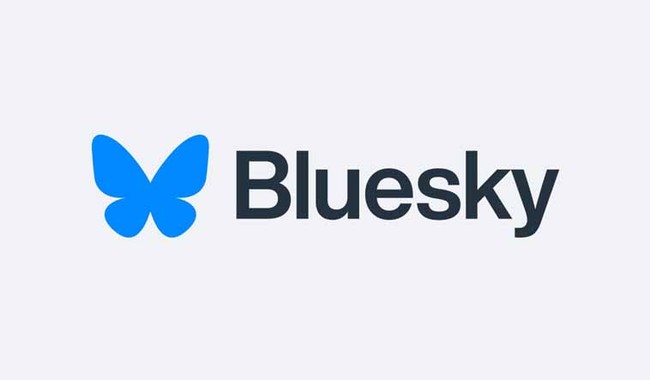Giving entrepreneurs an ‘EXIT’ from cancel culture

Two years before his suicide, journalist Gary Webb looked back on the reporting that ultimately destroyed his career:
I was winning awards, getting raises, lecturing college classes, appearing on TV shows, and judging journalism contests. And then I wrote some stories that made me realize how sadly misplaced my bliss had been. The reason I’d enjoyed such smooth sailing for so long hadn’t been, as I’d assumed, because I was careful and diligent and good at my job. … The truth was that, in all those years, I hadn’t written anything important enough to suppress.
That changed with the August 1996 publication of “Dark Alliance,” a series of stories Webb wrote for the San Jose Mercury News linking the 1980s explosion of crack cocaine in black Los Angeles neighborhoods to Nicaragua’s Contra Rebels, “a Latin American guerrilla army run by the U.S. Central Intelligence Agency.”
We can’t just let them have these uncontested slam dunks on our guys. Because every time it happens, every time someone gets cratered by one of these doxes, how many tens of thousands of people clam up and realize they shouldn’t speak up?
Boosted by black talk radio and the paper’s shrewd use of the then-nascent internet, Webb’s investigation became one of the first big national stories to catch fire without the imprimatur of traditional arbiters of newsworthiness like the New York Times and the Washington Post.
And it was Webb’s jealous fellow journalists, not the CIA, who went on the attack, running story after story attempting to discredit his research. Eventually, Webb’s own editor caved to the pressure, issuing a craven mea culpa, which prompted Webb to quit not long after.
Webb’s career never recovered; on December 10, 2004, he shot himself in the head with his father’s .38 revolver. The first “anti-misinformation” campaign of the online age had run its course.
Regime toadies vs. anons
It was quite the bargain for the CIA, who encouraged the journalist mob by feeding it “more balanced” stories and providing access to former agents. As Webb’s biographer Nick Schou told the Intercept, “[The agency] didn’t really need to lift a finger to try to ruin Gary Webb’s credibility. They just sat there and watched these journalists go after Gary like a bunch of piranhas.”
In the last 20 years, such gatekeeping has only grown more desperate. Thanks to improved technology and a degraded legacy media, “official” narratives are harder to maintain than ever.
Conversely, it now requires far less manpower to discredit an enemy. Where the Los Angeles Times assigned 17 reporters to their “Get Gary Webb” team, today all it takes is one determined journalist-activist.
This astounding increase in efficiency makes perfect sense when you consider that for this new style of reporting — the dox-posse — engaging with a writer’s actual writing is no longer a requirement. One must simply produce a name to attach to self-evidently “fascist,” “transphobic,” or “white supremacist” statements.
Implicit in the doxx-posé is the assumption that anonymity itself is suspect. If there’s nothing wrong with what you said, why did you say it under an assumed name?
It’s typical that so many self-styled champions of “democracy” refuse to acknowledge the samizdat-like underground they themselves have helped create. Articulating the wrong opinions out loud can have serious repercussions.
Doxxy lady
Consider the testimony of this writer’s former coworker (and occasional Align contributor), prolific cultural critic and satirist Peachy Keenan.
“I am a longtime Twitter anon,” Keenan tells me. “I am on my third or fourth account on X. But I used to live in terror that I would be exposed at my corporate office.”
Why? Keenan continues:
I made over six figures, I wanted to keep my job, ok? So what was my main thought crime? What deviant ideas was I trying to hide from my bosses at work? Just this: I dared to voice support for the GOP candidate in 2016 online.
This anodyne, completely normal act of supporting one of the two major candidates for president of the United States had become, at least to people in blue cities in 2015, an act as morally repugnant and evil as if I had spoken with glee about murdering infants. (The irony is that all the people I worked with actually were totally fine with murdering infants, but I digress.)
I had to endure colleagues at work routinely demanding Trump’s head on a platter, and earnestly hoping he was assassinated, along with all of his supporters. Multiple people — even friends who didn’t know my secret — would announce on social media that if any of their friends supported Trump, they should unfollow them and immediately kill themselves.
It was only when promoting her 2023 book, “Domestic Extremist,” that Keenan finally went public. But even this was a sort of “soft dox.” While Keenan showed her face on various TV segments, making it relatively easy to look up her government name for anyone so inclined, she still introduced herself to viewers using the Peachy Keenan moniker.
It’s a practice she continues to this day: “Now that I am ‘out,’ I still use my nom de plume because it still feels much safer to do so — it feels like I can at least keep the freaks and haters at arm’s length.”
Like Keenan, the internet commentator and Passage Publishing founder known as Lomez built a following while taking reasonable measures to maintain anonymity. That ended last month, when a Guardian writer named Jason Wilson identified him as one Jonathan Keeperman. (See also Align’s interview with Keeperman.)
A $10 donation
Wilson’s stalkerish, subtly malicious piece is an exemplar of the doxx-posé.
Over the course of 3,000 words, he identifies Keeperman’s former employee, cites domain registers and property deeds, explores his family history, links to photos of his wedding, and quotes old forum posts he’d made.
This may seem like thin gruel, but Wilson has made a meal out of less.
Indeed, one pictures the journalist hovering over the scraps of his more ambitious colleagues’ FOIA requests like a man eyeing his table mate’s demolished plate of nachos at the pub: “Gonna eat those, mate?”
In a 2021 Guardian article, he pored over information stolen from Christian crowdfunding site GiveSendGo to reveal that a Utah paramedic had donated ten dollars to Kyle Rittenhouse’s defense fund.
Sound perfectly legal? What if I told you this paramedic made the donation using his work email?
Yes, that’s also perfectly legal. But you might say it “raises questions.” Questions the paramedic refused to answer when newsman Jason Nguyen from the local ABC affiliate decided to follow the money and showed up on the free-spending public servant’s doorstep with a camera crew.
Wilson wasn’t about to make such a rookie play with a high-profile target like Lomez. This story was dynamite — the kind that could easily blow up in your face.
His quarry was a ghost, a shadowy figure adept at covering his tracks with a complex web of not signing up for social media accounts in his own name. Push too hard, and he was likely to go dark again.
Wilson’s strategy of googling stuff paid off. He got his name.
Promo code ‘Wilson’
And this time, that’s pretty much all he got. Whatever the University of California, Irvine thinks of Keeperman’s views no longer matters much; he left his position as lecturer almost a year ago and now runs Passage Publishing full time.
In fact, Keeperman was able to exploit the free publicity to sell more books, using the cheeky promo code “Wilson” to offer free shipping.
The article also boosted his profile on X, gaining him an additional 20,000 followers. Friends and acquaintances on X rallied around him. The mood quickly turned festive, with everyone pointing out that Lomez’s real-life identity — family man, successful entrepreneur, beloved teacher — only made him more appealing.
According to Isaac Simpson, an ad industry veteran who now runs the dissident marketing agency Will, landing in the crosshairs of the liberal media is increasingly a boon for targets, especially if they’re positioned to capitalize on the attention:
If, [like Keeperman] you have an underlying “parallel economy” product to sell, these sorts of media circuses can be incredible marketing tools. Viral tweets sell books. Perhaps the best form of earned media in existence is a super controversial mainstream media cancellation attempt that gets millions of views from polarized audiences.
This is why media companies publish these stories, but they’re not prepared for the subjects to monetize the traffic for themselves. While perhaps 60 percent of the audience may be appalled, the other 40 percent will be not just neutral, but stimulated to support the “bad guy” in the situation, and to buy their products or subscribe to their Substacks. As the Cancellation Industrial Complex reveals itself to be a paper tiger, it also reveals itself to be a tiger you can ride. It’s truly never been a better time to get cancelled or doxxed.
(Simpson has interviewed Keeperman (as well as this writer) on his “Carousel” podcast; he has also written for Align.)
Doxxer’s delight
In the immediate aftermath of Keeperman’s doxing, his friend Kevin Dolan (who writes under the name Bennett’s Phylactery) wrote as succinct and eloquent a description of what motivates the doxx-posé as you’ll read anywhere:
Journalistic doxxing in its purest form is a kind of “dead drop” — the delivery of a bland intelligence product from one organ of state security to another.
The only reason to broadcast this intelligence product on a public media outlet is:
To create the legal pretext for an enforcement action by Lomez’s EEOC-accountable employers, investors, etc.
To suggest the threat of violence by regime irregulars (mentally ill antifa goons).
To activate whatever social consequences can be created for Lomez and his family.
Dolan writes from experience; he himself was doxxed in 2021 when an anonymous group of leftists posted a lengthy dossier on him accusing him of racism, anti-Semitism, and homophobia.
The “charges,” such as they are, stem from posts Dolan, a member of the Church of Latter Day Saints, made on a Discord server he shared with other conservative LDS members.
The main activity was making impolite jokes and poking fun at mainstream liberal orthodoxy. In other words, the kind of perfectly normal goofing around that people like Dolan’s doxers are quick to identify as “hateful, racist, anti-feminist, xenophobic, and other offensive content.”
Ironically, the group’s own, deadly serious description of Dolan and his cohort’s posting nicely captures the prevailing spirit of light-hearted fun:
[They] are known to incorporate Pepe the Frog, a recognized hate symbol, into their memes. [Some] also use a version of the hate symbol Pepe that has been edited to look like Mormon founder and prophet Joseph Smith. Common with the far-right, vaporwave, or fashwave, edits over Mormon imagery is also common.
As supposed evidence of Dolan’s “dual lives,” the post also revealed his educational background and, crucially, his employment as a data scientist (with U.S. security clearance) at a prominent consulting firm.
The post concluded with a move straight from the doxxing playbook Dolan would later lay out.
It quoted the company website’s boilerplate statement about being “values-driven” and “committed to advancing diversity, equity, and inclusion,” followed by its contact information, which it urged readers to use in order to get Dolan fired:
You can call their Ethics Helpline … or email … or submit a report online and let them know their employee Kevin Michael Dolan has been harassing minorities, women and journalists, as well as posting violent racist, antisemitic, homophobic, misogynistic, and otherwise hateful speech online for years.
The post had the desired effect almost immediately.
In search of the ‘EXIT’
“I was doxxed on a Sunday night,” Dolan told me. “Because it was national security job, I had to go report it immediately [Monday morning], which I did. And then was told to leave the campus that day. And then I was fired on Wednesday.”
Naturally, the wanton torpedoing of Dolan’s career was an irresistible scoop for the Guardian’s man on the extremism beat.
Jason Wilson was happy to give the anonymous collective’s smear campaign the sheen of journalistic respectability. All he had to do for his byline was repeat the group’s vague, unverified accusations while leaving out a few telling adjectives like “vile.”
Unlike Keeperman, Dolan had not completely dox-proofed his life. His job was the sole means of support for his large, growing family.
Dolan considered taking legal action or hiring a reputation management service; both options were prohibitively expensive. At any rate, finding a new job in his field was going to be a challenge. He had ample student debt and no health insurance.
What Dolan did have was the sizable online following he’d attracted with his commentary and advice; he’d often wondered how he might turn that into some kind of business. But Dolan had never considered himself to be the entrepreneurial, “grindset” type.
“I was very deep in the mindset of ‘I’ve been a finance drone my entire career,'” says Dolan. “I have no marketable skills. There is nothing I can take anywhere else, which from a resume perspective is true. If I had to go apply for jobs right now, I would be as up a creek as anybody in the job market right now.”
His sudden unemployment, cushioned by a recent bonus payment from the job he’d just lost, forced him to get serious, a process he describes as “build[ing] the plane in flight.”
The vision was simple. A membership-based network sharing entrepreneurial know-how, opportunity, and encouragement. A community of trustworthy men with an array of different skills and experience, committed to helping each other gain independence from a system that tolerates an ever-narrowing range of speech and beliefs. Dolan called it EXIT.
Dolan credits his friend, men’s style consultant Tanner Guzy, with helping him realize what he had to offer. “He said, ‘You have expertise that you can share and you can get guys to work together on this problem.'”
Guzy also kept him from overthinking things. “He was the one who said, ‘It’s going to be X dollars for the first 100 guys who sign up and then it’s going to be X dollars for the next, and then it’s going to be a hundred bucks a month. Don’t think about it. Don’t try to do a valuation exercise, just do it.'”
So he did.
“It was a very rough concept,” says Dolan. “And so the people who were willing to buy [into it] were people who knew me well enough to buy the ticket and ride the ride and trust that I was gonna try to make it worthwhile.”
EXIT launched two days after Dolan lost his job. Within two weeks, 70 men had signed up.
“It started as literally one call a week,” Dolan recalls. “And the purpose of that call was me saying, ‘All right, fellas, what should we do?'”
Dolan guided the conversation around a thesis he had:
“That honest, competent people are systemically underpriced in the labor market because of the entire [DEI] regime. And so we need to build things that are below the regulatory thresholds that [create] that distortion … all these requirements about how competent your staff is allowed to be.”
The field of software development — where “five, six guys can build [something] that scales 10,000 X and makes them a billion dollars” — offers obvious advantages for those seeking a fresh start. But other options abound, says Dolan, including owning a manufacturing facility or a trades business.
And you don’t necessarily need to work for yourself, Dolan adds. “Even sales [offers independence] to the extent that you as a sales rep have an exclusive or privileged relationship with your book of clients.”
‘What if we could take the reins back?’
The first step for some EXIT members is to reframe their skillset. An outsider’s perspective, such as the one Guzy offered Dolan, can help.
“I had a very introverted academic who was doxed and fired,” says Dolan:
This guy’s a PhD. He’s very, very brilliant. But he came in saying, “Oh, I’m just an academic.” And it was so fun, because we all got to say, “Wait a minute, you’re a math genius. You’re gonna be fine. You’re gonna make a bazillion dollars.” We connected him with some different guys working on different things, and he ended settling on some crypto projects. Now, he’s making three to four times what he was making as an academic.
In its almost three years of existence, EXIT has grown in membership and expanded its offerings, which now include one-on-one “matchmaking” for members seeking specific expertise, as well as in-person meet-ups and regular call groups covering topics from fitness and machine-learning to homeschooling.
“It’s very emergent,” says Dolan. “We try a thing for a couple of weeks. We see if there’s appetite for it. And if there’s not, we kill it. And if there is, we expand it.”
Ideas first exchanged in the group have also resulted in a movement to address declining birth rates. Dolan hosted the first Natal Conference in Austin, Texas, last December. The second annual NatCon is scheduled for this December 6 and 7.
While grateful for the success he’s found, Dolan is well aware that not everyone can follow a similar path. “I think doxxing is basically a solved problem if you’re willing to be like an extremely online rightwing celebrity, right? If you’re willing to do the podcast circuit and play a character. And I’m not denigrating that, I do that. I enjoy what I do for a living now, it’s meaningful to me.”
EXIT’s central purpose is to make this kind of independence available to anyone who wants it, including those who have no interest in being some kind of culture warrior. “Normal people with mouths to feed,” as Dolan puts it.
“The paradigm that is dominant in the United States and the West in general is incompatible with human life and human civilization. It sterilizes everything it touches,” says Dolan. And the more people who have the tools to resist this paradigm, the weaker it becomes.
“We can’t let them win. We can’t just let them have these uncontested slam dunks on our guys. Because every time it happens, every time someone gets cratered by one of these doxes, how many tens of thousands of people clam up and realize they shouldn’t speak up?”
One thing Dolan seems to have learned from his own doxxing ordeal is the limited usefulness of taking such attacks personally.
“A lot of what we’re up against is not other human beings. What we’re up against is these distributed headless incentive systems,” Dolan says. “I don’t think of myself as [being] at war with any person or class of people; I see myself as at war with Skynet.”
With this in mind, the key to victory is simply presenting a better alternative. “[EXIT] is about presenting something positive and constructive and optimistic,” says Dolan. “What if we could take back the reins in a way that worked for everybody?”









